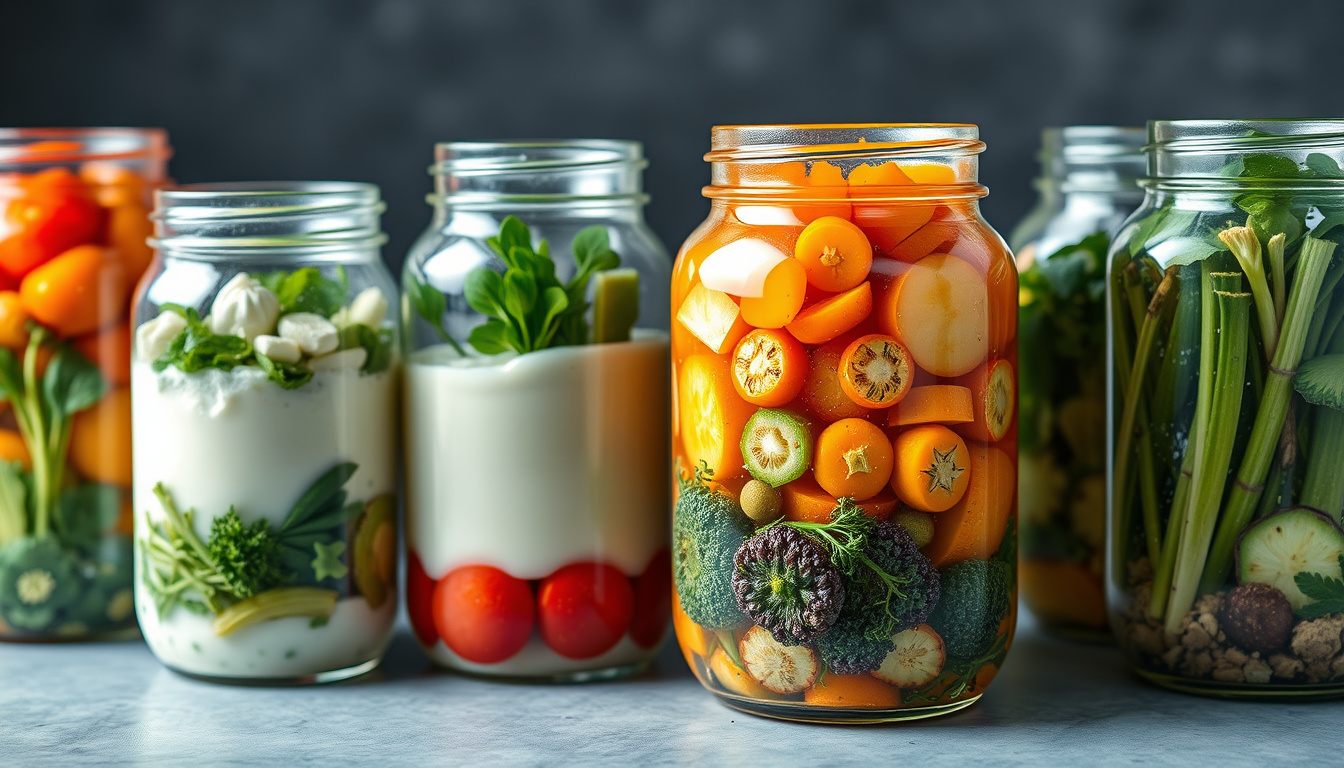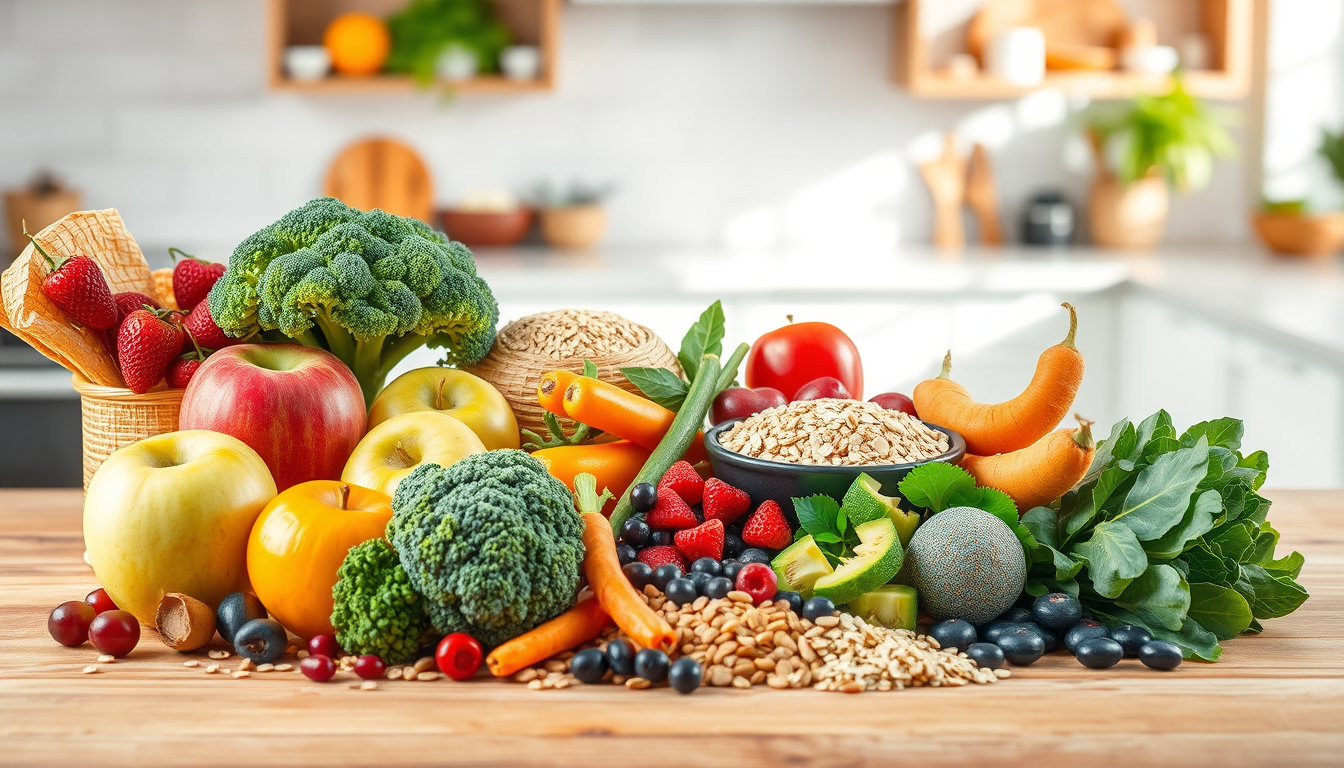In recent years, fermentation has made a strong comeback. It draws health fans and food lovers. What is fermentation? And why do many people enjoy it now? If you want to improve gut health, boost flavor, or try new kitchen ideas, knowing fermentation can change your routine. This guide reveals the secrets of fermentation and shows how this old process can boost your health and transform your meals.
What is Fermentation?
At its heart, fermentation is a natural change. Microbes like bacteria, yeast, or mold turn sugars into alcohol or acids. This shift helps keep food safe and adds more nutrition and taste. People have used fermentation for thousands of years to make bread, yogurt, kimchi, wine, and many other kitchen staples.
Why is Fermentation Important for Health?
Fermentation gives many health perks. Research backs some of these benefits. It boosts good bacteria in the gut and can support the immune system and even improve your mood. Adding fermented food to your diet is a tasty way to care for your body.
The Science Behind Fermentation and Gut Health
Your gut holds many tiny life forms, known as the gut microbiota. They help break down food, make vitamins, and guide the immune system. Fermented food often includes live good bacteria. Regular helpings of sauerkraut, kefir, or kombucha can add to these gut helpers. A stronger and diverse gut has links to better digestion, less inflammation, and a more positive mood, with some studies noting less anxiety and depression.
Different Types of Fermentation
There are several kinds of fermentation. Each type builds its own flavor and health rewards:
-
Lactic Acid Fermentation: In this method, lactic acid bacteria work on vegetables, dairy, and more. You can see it in yogurt, kimchi, sauerkraut, and sourdough bread.
-
Alcoholic Fermentation: Yeast turns sugars into alcohol and carbon dioxide. This process makes beer, wine, and spirits.
-
Acetic Acid Fermentation: Acetic acid bacteria turn alcohol into vinegar. Apple cider vinegar and balsamic vinegar are good examples.
-
Fermentation with Mold: This type uses mold to work on foods. Blue cheese, soy sauce, and certain aged meats are common.
How to Start Fermentation at Home
Starting fermentation is simple. Follow these steps to try it at home:
- Choose Your Fermented Food: Begin with simple picks like sauerkraut, yogurt, or kefir.
- Gather Quality Ingredients and Equipment: Use fresh produce, good dairy, clean jars, and weights made for fermentation.
- Follow a Reliable Recipe: Right salt levels and times help keep the food safe and tasty.
- Allow Fermentation to Happen Naturally: Keep things at the right temperature, usually between 65-75°F (18-24°C).
- Taste and Adjust: When the food has reached your taste, put it in the fridge to slow the change.
Benefits of Fermentation Beyond Food
Fermentation affects more than just taste and gut health. Some main gains are:
- Better Nutrition Levels: The process can add vitamins, especially B vitamins and vitamin K.
- Food Storage: Fermentation can help keep food longer without spoilage.
- Lowering Antinutrients: The process can reduce compounds that block mineral uptake.
- Cultural Bond: Using time-honored fermentation methods helps you feel closer to your heritage.
Common Fermentation Foods and Beverages
Adding different fermented foods to your meals can show many benefits and new tastes. Common items include:
- Yogurt and Kefir: Dairy foods rich in good bacteria for digestion.
- Sauerkraut and Kimchi: Fermented vegetables that hold fiber and good bacteria.
- Kombucha: A tea that has gone through fermentation, filled with antioxidants and good bacteria.
- Miso and Tempeh: Soy foods that pack protein and support gut health.
- Fermented Drinks: Water kefir, tepache, and beet kvass are easy to try.
Troubleshooting and Safety Tips
Fermentation stays safe if you do it right. Use these tips to keep things on track:
- Use clean tools and jars to stop unwanted germs.
- Keep to the right temperatures.
- Discard any food with mold, bad smells, or odd colors. That means the food is spoiled.
- Look to trusted guides when you face problems.
FAQs about Fermentation
Q1: How long does fermentation take?
A1: It depends on the food and its warmth. Many ferments are ready in a few days to a few weeks. For instance, sauerkraut can be done in 1-4 weeks.
Q2: Is fermented food safe for everyone?
A2: Most people can eat it, but those with weak immune systems or certain health concerns should talk to a doctor before eating a lot of fermented food.
Q3: Can I ferment food without special tools?
A3: Yes. Many foods do well in a glass jar, with a cloth cover and salt.
Sources & Further Reading
For more on fermentation and its health effects, check the Harvard T.H. Chan School of Public Health website.
Conclusion
Fermentation is more than a food trend. It is a strong process that can change your meals and your health. By improving digestion and adding new taste, fermented food adds many gains to a lively, healthy life. Whether you make vegetables at home or try different drinks, using fermentation can brighten your daily routine. Start your fermentation journey today and enjoy the rich taste and health perks of this age-old method!




